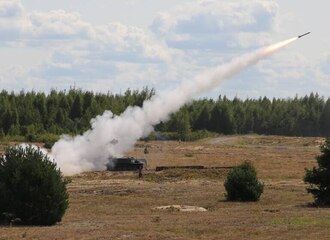На русском языке:
Шрайбман: «Запад не хочет выкладывать на стол все козыри»
На беларускай мове:
Шрайбман: «Захад не хоча выкладваць на стол усе казыры»
Political analyst Artyom Shraibman in an interview with Radio Svaboda told how the new sanctions of the EU, the United States, Great Britain and Canada can affect the situation in Belarus, as well as what response from the official Minsk can be and whether it is worth waiting for the escalation of the migration crisis. Here is a transcript of the expert’s answers to questions about sanctions.
– How can we assess the overall scale of these sanctions? Now there is such a popular expression «hellish sanctions». These are «hellish sanctions», those that seem to deliver the last blow that will wake up the economy or not?
Of course not. Even in comparison with the 4th sanctions package, the current sanctions are inferior in scope, scale, and severity. Of course, we will see how the restrictions on the national debt imposed by the United States work. It is necessary to see how exactly the sanctions against the Belarusian potash company will work. Plus, of course, it is interesting how the European sanctions will affect the exports of Grodno Azot and other enterprises that still, at least partially, but supply their products to the European Union. But in general, these sanctions are still targeted, they concern specific enterprises, which means that these enterprises can, purely theoretically, bypass them with the help of a variety of gasket firms, as some of those who have already been included in the past lists are doing – and they do not hide it much. Therefore, there is nothing «hellish» in these sanctions. With the proper political will, if you want to monitor violations, circumvention of sanctions, they can become a problem, of course.
But it seems to me that if we are talking about the entire sanctions track, the entry into force of the fourth package will be much more important in the coming months : that Belaruskali should come under US sanctions from December 8, and have problems with banks and settlements with its counter parties, including the Lithuanian port; petroleum contracts that are going to expire next year – it all matters.
«Specifically, the fifth package and the accompanying sanctions of other Western countries – their contribution to the Belarusian crisis will be rather that they, like the fourth package, will provoke Minsk to some kind of response»,– Shraibman said.
Imposing sanctions is like pouring gasoline into the fire. Each package, no matter how powerful it is, makes the other side react. Because you have to show, like, you can’t treat us like that. Lukashenka has already made several rather cardinal statements on this topic: that he will block transit and so on. I’m not sure he’ll get to that, but…
— Recognizing Shraibman’s channel as extremist, arrests across the country – is that the answer? Will there be something else? Maybe they will still block transit?
Given how Lukashenka has raised the bar for answers, any domestic repression will no longer be a powerful, asymmetrical, but adequate response to the fifth package of sanctions. There is not much left to repress in Belarus: to recognize another 150 Telegram channels as extremist is not the answer. This is not something that even the West will notice – even to its audience it will be impossible to sell it as a manifestation of inflexibility.
Indeed, more and more often this will suggest a «bombing of Volozhin»: in response to Western sanctions, we punish someone at home. I think there will be answers to the interests of the West. And these can be business interests: transit, among other things. Although, this is the most extreme measure, because any transit has two sides: if on one is the West, then the East is on the other. And we don’t want to upset anyone in the East with such measures.
It is also possible to increase pressure on diplomats: to expel some, to intimidate others. Probably, there is still a little European business left in Belarus. But this [pressure on European business] will again be a shot in your own legs: some A1 has more reputational problems than profits, due to the fact that it does business in Belarus. And maybe it’ll even be happy if it’s kicked out of the country.
The logical answer is the border. They have already tried border escalation, various provocations with migrants – they can try to escalate. There are thousands of migrants left in the country, I think not all of them want to return home. And Lukashenka, speaking to migrants, said: «We will help you with where you want to go«. So it’s worth waiting for escalation here. In principle, all these options, with the exception of pressure on diplomats, are risky and dangerous, because they can give rise to much more serious consequences than the sanctions of the fifth package themselves.
«The risks of armed clashes with Poland are already being seriously analyzed by many military and political analysts. And there are also risks that China and Russia will «rear up» due to the fact that Lukashenka allows himself to disrupt their trade flows to Europe and vice versa»,– Shraibman said.
It is precisely because Minsk does not have such a wide range of tools now, we can expect very clumsy and provocative actions. This is the main function of sanctions: sanctions now do not lead directly to defeat, do not bring the regime to its knees and do not even destroy the economy of Belarus. First of all, sanctions destabilize Lukashenka’s condition, provoke him to destructive steps.
— This can lead to war!
Yes. Maybe not the world war… If now some chain of events leads us to an unprovoked armed incident on the border with Poland, it will never come as a surprise to me. Lukashenka can no longer step aside, all incentives are set up for the continuation of tension. It will be a miracle if the conflict can be avoided. But in the case of real armed incidents, I don’t see the Kremlin’s political will to fan a regional war or anything more serious out of it. Most likely, Lukashenka will be pulled over.
— They are already talking about the sixth sanctions package, and so on. Why can’t the West immediately impose strong, «hellish» sanctions?
They don’t want to play all the trump cards. Minsk still has something to «spoil the air in the region», Lukashenka can still prove himself. And if there is nothing left in the arsenal, the West will look somehow ridiculous, and all forced politics will choke. The step-by-step process of imposing sanctions shows that at each new step Lukashenka is offered a fork in the road: you can go further or go back. This is the basis of any sanctions policy against any state.
But there are other reasons too. They are subjective, due to the fact that the European Union is 27 countries, and any sanctions are the product of consensus. You cannot immediately step on the interests of too many business entities, political players in the EU. Previous sanctions have been creaking, and when there are bumps at the distance, you can’t run it right away. It is necessary that a consensus is formed, and it is formed gradually. It’s a complicated diplomatic process, a game. To convince, conditionally, Italy to join something, you need to give it something in return. The European Union can’t do it any other way: it’s not a country, it’s not a government, it’s something more serious.


